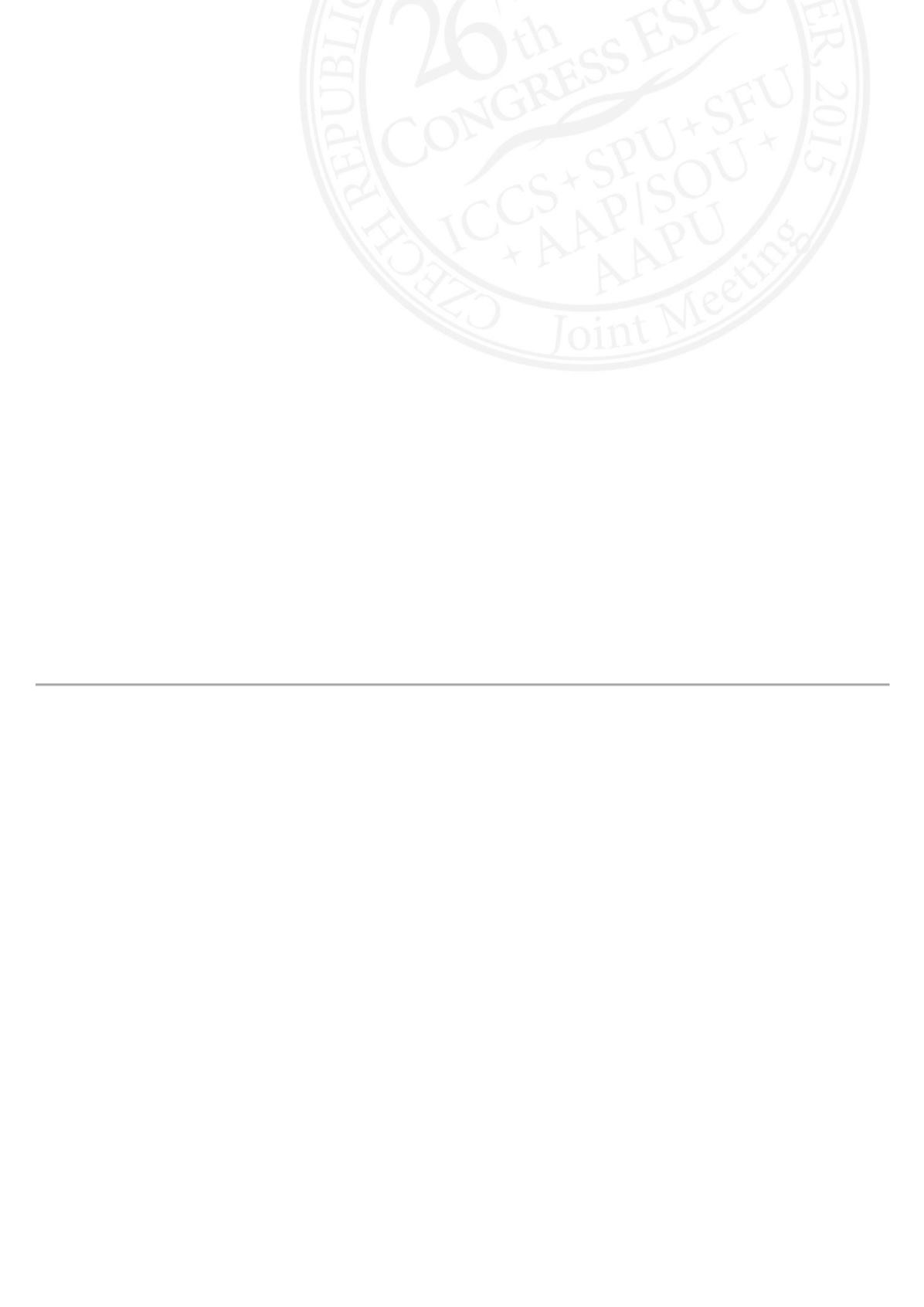

10:51 - 10:55
ICCS S4-8
(SO)
TROSPIUM: A USEFUL ALTERNATIVE ANTICHOLINERGIC IN CHILDREN WITH
EMOTIONAL BEHAVIOURAL DISORDERS
Anne WRIGHT and Jo CLOTHIER
Evelina London Children's Hospital, Paediatric Nephrourology, London, UNITED KINGDOM
PURPOSE
Anticholinergic (AC) medications used to treat OAB in children have well-known central nervous system (CNS) adverse
effects (AE) and there have been recent concerns regarding long-term CNS effects. Trospium does not cross the blood-
brain barrier and is a useful alternative.
MATERIAL AND METHODS
Descriptive, retrospective chart review of children treated for overactive bladder (OAB) with Trospium in our institution.
RESULTS
Thirteen children (median age 7years/4-16, 7M/6F) diagnosed with OAB were commenced on trospium 20mg twice daily
to aid symptom control. 8 of the patients had failed treatment with tolterodine/oxybutynin due to CNS adverse effects
including irritability,anxiety and anger issues and of these 4 had no history of emotional, behavioural disorder (EBD).
Five patients with EBD were commenced on trospium as initial treatment. Only one patient experienced CNS side effects
(no history and similar AE on modified release oxybutynin). Of 9 patients with diagnosed EBD, none experienced
exacerbation of EBD symptoms and in one behvioural symptoms improved. With regards to OAB symptoms 4 patients
had no response (<50% effect), 7 had partial response (50-99%) and 2 had complete response (100%). 9 patients had
no AE, 3 had gastrointestinal AE and 1 had dry mouth.
CONCLUSIONS
Trospium is a useful alternative for children with OAB and a history of EBD, or CNS adverse effects on first line
anticholinergic medications.












